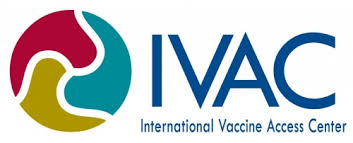By Asma’u Ahmad
The John Hopkins, International Vaccine Access Centre (IVAC) has called for strengthened evidence and data to convince policy makers in appropriating adequately for immunisation in Nigeria.
The Manager, Scientific Communication of IVAC, Julie Younkin, made the call at a workshop by IVAC in Abuja.
Younkin said that having comprehensive data would help advocates have easy access to articles that showed that immunisation had had impact in the society.
“Having a comprehensive data enables advocates carry out their jobs effectively without struggles. We in the academic institution are doing our best to ensure that what has been produced in the academic setting is made available for advocates to use.
“If advocates who speak to policy makers cannot have easy access to that evidence then the purpose would be thwarted. We are trying tomake the link between the data that are generated to drive policy and help advocates use it effectively,” she said
Dr. Chizoba Wonodi, Nigeria Programme Convener, IVAC, urged the Nigerian Government to ensure appropriation of adequate funds for routine immunisation in the annual budgets.
Dr. Wonodi added that the funding gap for immunisation was because of increasing birth rate, introduction of new vaccines and the five-year acceleration transition out of Gavi funding support starting from 2017.
“Vaccines are estimated to avert significant death and disability through their routine use, increase access and coverage of care for mothers and children and avert a considerable number of childhood deaths.
“The interactions of childhood diarrhoea, pneumonia and malnutrition contribute to a vaccine cycle of poor health and delayed growth. Immunisation can help promote healthy growth and development,” she said.
Wonodi noted that bridging this gap would require evidence based advocacy. Dr. Bassey Okposen, Head of Routine Immunisation, National Primary Health Care Development Agency, said that data were needed to plan for
improved service delivery in the country.
Dr. Okposen added that there were systems in place that had been developed to help keep all data together.
He noted that funding health workers had been a major challenge with some local governments unable to provide health workers with the required tools to gather data effectively.


